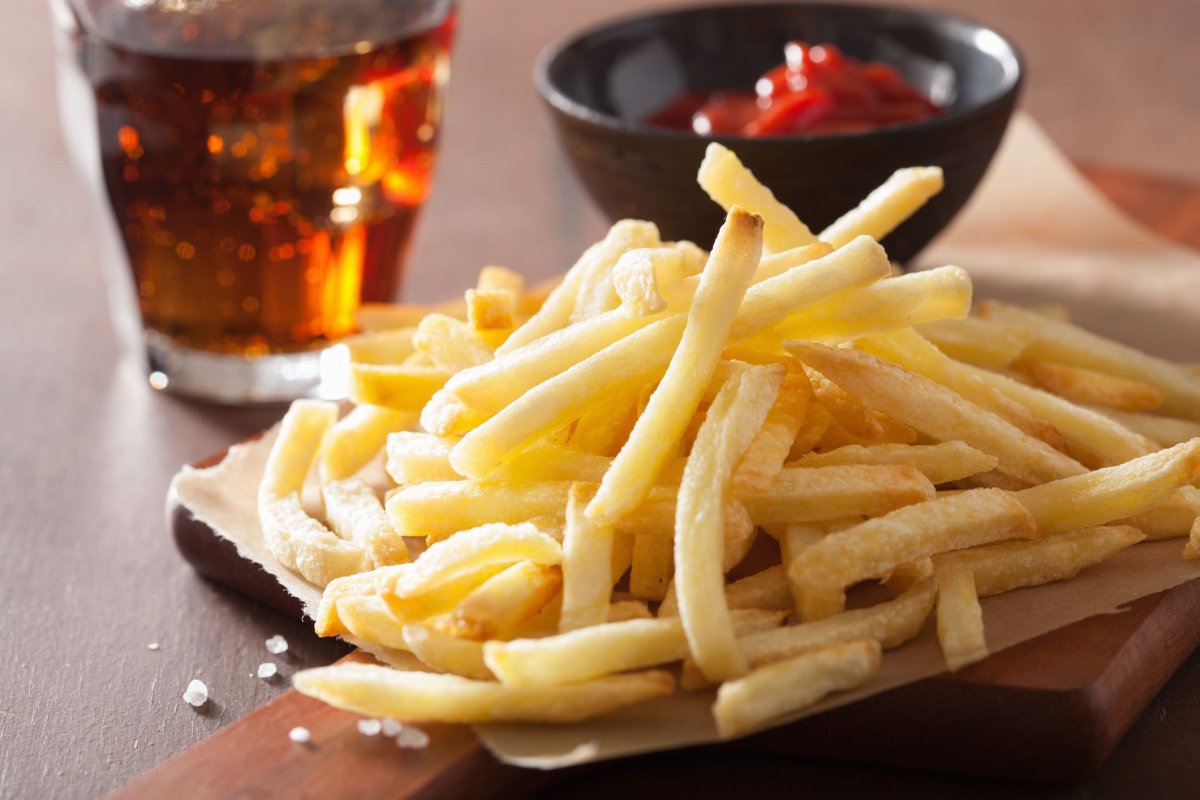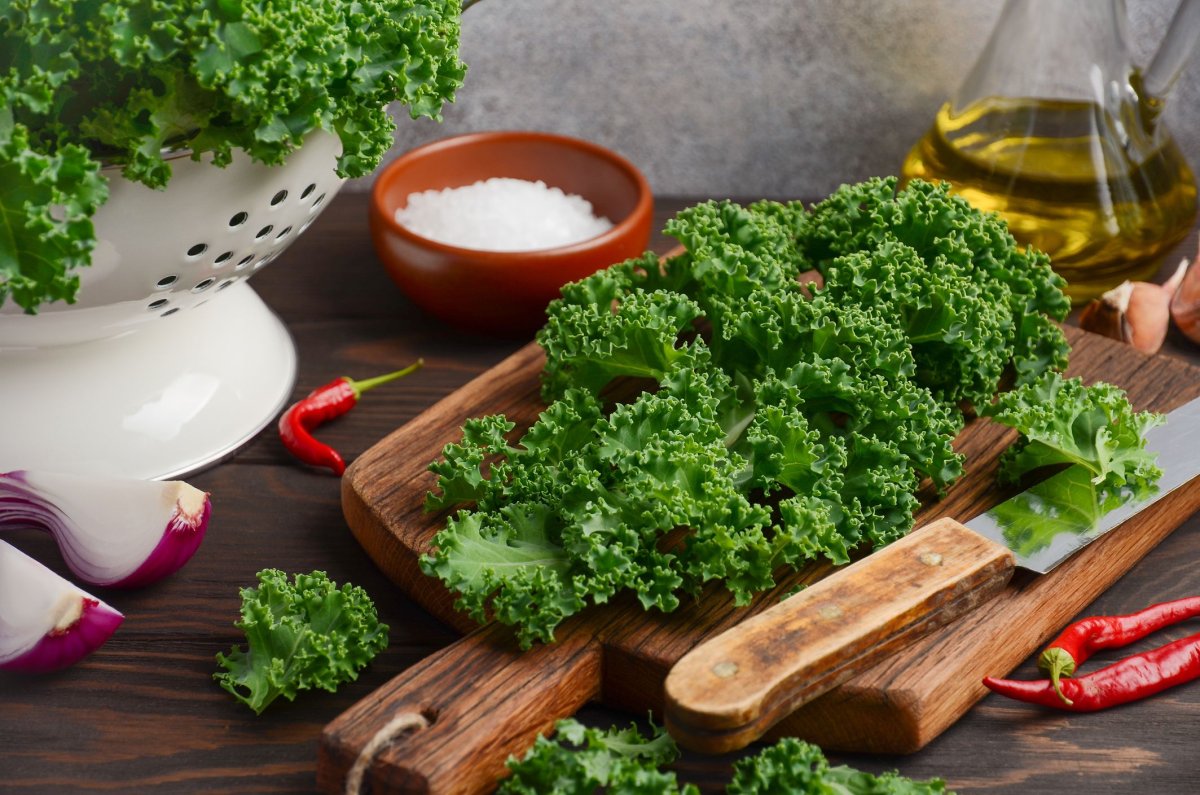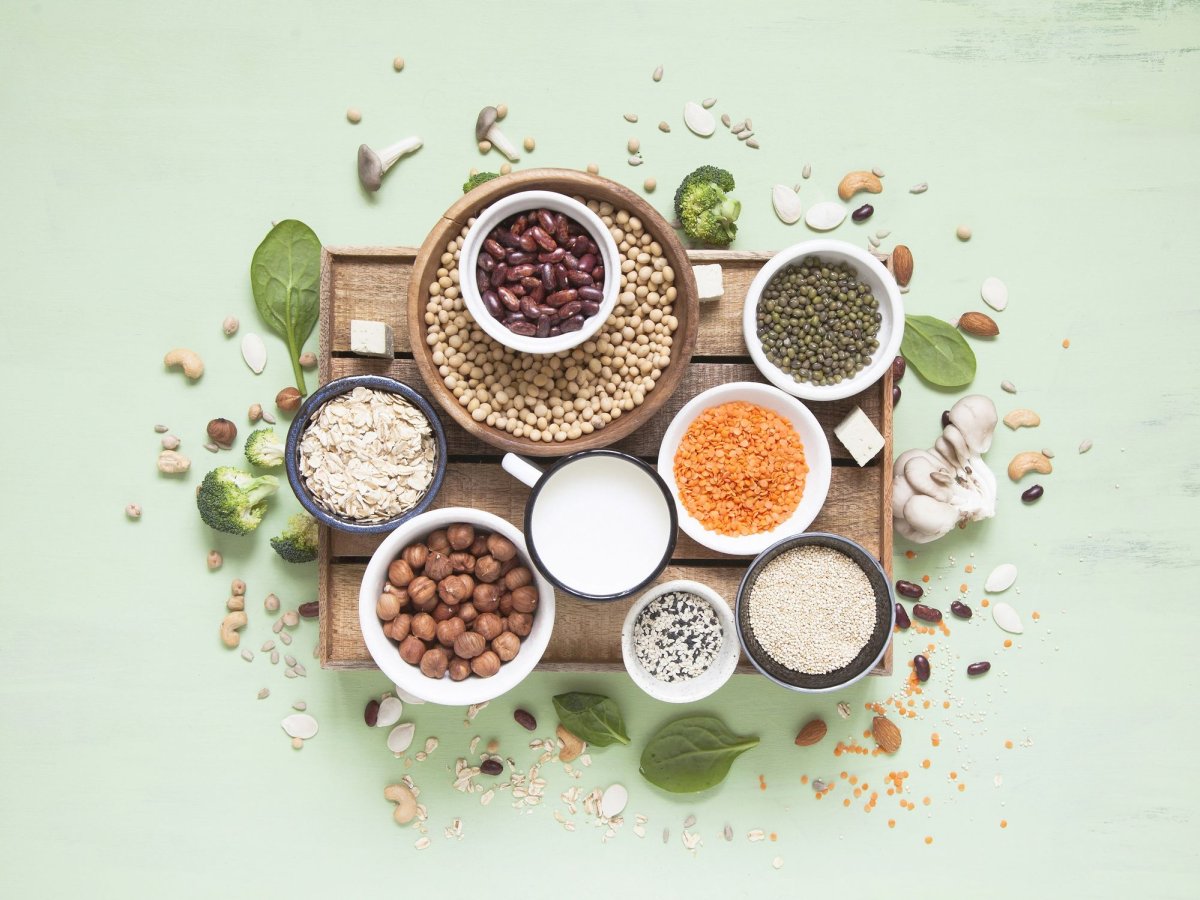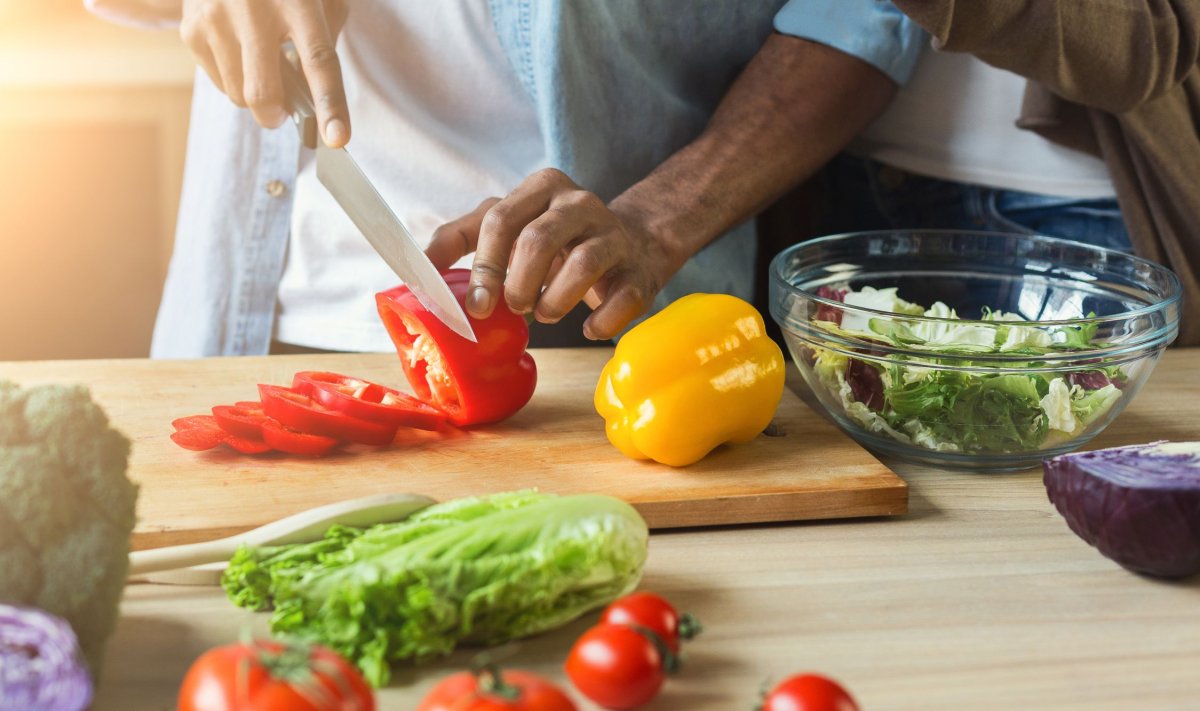Plant-based diets are all the rage, with everyone from medical experts to Beyoncé extolling the virtues of a meat-free or meat-light existence. But it only works if you're doing it properly. Why miss steak if you're making mistakes?
Here are five frequent missteps people make when starting a plant-based diet.
1. Assuming Any Meatless Meal is Healthier

While the health science behind sourcing most of your food from plants is sound, you still have to think about what you're eating: After all, french fries and beer are vegan.
Almond milk may seem like a good alternative to cow's milk, but it only has an average of 1.5 grams of protein per serving. And many commercial brands are loaded with sugar. Similarly, white bread, pasta, potatoes and other refined carbohydrates may take up as much room in your stomach as a pork chop, but they aren't necessarily a wise choice. "A number of epidemiological studies have found that higher intake of such carbohydrates is linked with a greater risk of type 2 diabetes and ischemic heart disease," writes Sharon Palmer, author of The Plant-Powered Diet.
If you're not eating a diet balanced with vegetables, fruits, whole grains, legumes and water, you could be putting yourself at risk for obesity, diabetes, heart disease, and a host of other health concerns. Never assume you have free reign just because something is plant-based.
2. Not Getting Enough Nutrients

While it's possible to get all your vitamins and nutrients on a plant-based diet, you have to adjust your menu and lifestyle to make sure you cover all your bases. Vitamin B12, responsible for proper function of the nervous system, is found mainly found in animal products. A B12 deficiency has been associated with numbness, lethargy, memory problems, headaches and even depression. Tempeh and nori have B12, and many energy bars, nutritional yeasts and breakfast cereals are fortified with it, too. And of course vitamin supplements can pick up the slack.
Calcium always seems to be a concern with plant-based diets, even though cow's milk is not the best recommended source. The Harvard School of Public Health recommends you, "limit milk and dairy foods to no more than one to two servings per day. More won't necessarily do your bones any good—and less is fine, as long as you get enough calcium from other sources."
Those "other sources" can include bok choy and kale, which have higher absorption rates than dairy (53% and 49%, respectively, compared to 32% for milk). They also have iron and Vitamin K, which help with absorbing calcium into your bones.
Omega-3 fatty acids, commonly associated with fatty fish like salmon, reduce inflammation, improve eye health, and aid in lowering the risk of heart disease. Don't worry, though--seaweed, chia seeds and walnuts all supply ample amounts of Omega-3s.
3. Relying Too Much on Mock Meats

There's nothing wrong with throwing a veggie sausage on the grill or putting a tofurkey in the oven on Thanksgiving. Meat substitutes can certainly help with a transition to a plant-based diet, but over-reliance on processed fake meats can be counterproductive. "Many are just as high if not higher in fat, sodium and calories than the real thing," dietitian Vandana Sheth told Global News. Some trendier meat alternatives, like Beyond Burger, have "clean labels," which only include whole, natural or minimally processed ingredients. But many still include a litany of artificial and processed additives to help replicate the taste and texture of beef, often rendering the final product not much healthier than the original.
If you still want a burger, consider patties made from whole ingredients like black beans, sweet potatoes or quinoa. The flavor might be different, but it's leagues better than overly processed options.
The same criticism goes for faux fromage: Many contain additives, preservatives and are highly processed, and some even contain casein, which is a protein derived from milk. "Cheese" developed from cashews or almonds are whole foods, and a sweet-potato sauce can deliver a tasty macaroni and cheese. You can also opt for other alternatives all together to replace cheese, like pesto or tahini sauce.
4. Panicking Over Protein

It's a question every vegan encounters: "How do you get enough protein?" To all those armchair nutritionists we say: Calm down. While animal tissue does have all of the amino acid essential to human health, so does rice and beans.
The daily Recommended Dietary Allowance (RDA) for protein, is 0.36 grams per pound of body weight—that's 56 grams for the average man, and 46 grams for an average woman. That works out to only about 10% of your daily recommended caloric intake. Obviously if you're very active or training for a sport, you'll need more, but there are a variety of foods that can supply that much protein in a couple of servings. Tofu, lentils, most beans, spelt, wild rice, soy milk, oats and quinoa are your best bets, and some vegetables like broccoli, spinach, artichokes and brussels sprouts have around 4 to 5 grams of protein per cooked cup. Nutritional yeast and hemp seeds can easily be sprinkled over a salad or added to a soup to pack in more protein, as well.
Having one of these foods, and others rich in protein, at every meal will likely give you enough protein for the day.
On the protein vein, one important component is consuming all nine of the essential amino acids, which our bodies cannot create on their own. Lysine is the biggest a concern if you're vegan, since it's not too prevalent in plant-based sources. The World Health Organization recommends 13.6 milligrams of lysine per pound of body weight, putting the average daily intake around 2,045 milligrams of lysine. Lentils and tofu are most abundant in lysine, but pistachios and almonds are good sources as well.
5. Underestimating the Importance of Meal Planning

Most major U.S. cities now boast a bevy of vegetarian options, even at Michelin-starred restaurants. But for the most part, opting for a plant-based diet means planning ahead. Taking part of your Sunday to prepare some plant-packed meals for the week is a good way to ensure you'll have a balanced diet and not resort to breaking your diet. In a sample plant-based menu for Healthline, nutritionist Rachael Link suggests tofu scramble with sauteed peppers, onions and spinach for breakfast; a burrito bowl with brown rice, beans, avocado, salsa and veggies for lunch; and vegetable paella with a side salad for dinner. Any of those can be prepared in advanced and warmed up when you're ready to eat.
It's a good idea to seek out new vegetarian recipes a few times a week, so you get variation in your diet and don't fall into the trap of eating pasta, potatoes or other easy, filling meals too frequently. For example, noodles made zucchini instead of refined grains offer a healthier alternative for pasta lovers.
If you're going out to ear in a restaurant, check the menu beforehand to make sure you'll have options. And don't forget that some salad dressings and sauces may contain cream, eggs, anchovies and other animal products.
The Bottom Line
A plant-based diet is a great choice for a healthier lifestyle, one linked to lowered risk for heart disease, decreased rates of obesity and diabetes, among other benefits. But don't jump in blindly. If you really want to keep this resolution, choose a variety of whole foods, keep tabs on your nutritional requirements and figure out alternatives to your go-to favorites.
Uncommon Knowledge
Newsweek is committed to challenging conventional wisdom and finding connections in the search for common ground.
Newsweek is committed to challenging conventional wisdom and finding connections in the search for common ground.
About the writer
To read how Newsweek uses AI as a newsroom tool, Click here.








